January 2021
COVID-19 vaccines: Rollouts and inequity concerns
The year opened with some degree of optimism for vaccine rollouts but also warnings against vaccine inequity. The accuracy of those warnings was quickly confirmed: higher-income countries scooped up early supplies, causing shortages in lower-income countries as the world battled successive variants of the virus. This put people living in humanitarian emergencies especially at risk of being left out, as did weak healthcare infrastructure, fear of arrest, or vaccine hesitancy. Initial vaccine shortages eased as the year progressed. Wealthier countries began donating their excesses, though these jabs were often close to expiry. By December, eight billion COVID-19 vaccine doses had been administered around the world, but the majority have been in high-income and upper-middle income countries, according to the World Health Organization. Dozens of countries are at risk of missing minimum vaccination targets for the end of 2021.

Read more → Tracking the coronavirus pandemic and vaccine rollouts
February 2021
Myanmar: Military coup
A military coup ushered in new volatility for humanitarian operations in a country where multiple conflicts have simmered for decades. Humanitarian access was already badly strained under the former quasi-civilian government led by Aung San Suu Kyi; it shrunk even further for local and international aid groups after the coup. The military has been accused of weaponising humanitarian aid (and COVID-19 treatment). Ending a decade of limited democratic reforms, the coup exacerbated old conflicts and triggered new ones, tripling the number of people needing humanitarian aid and raising the risks of a regional crisis spilling over into countries like India and Thailand.
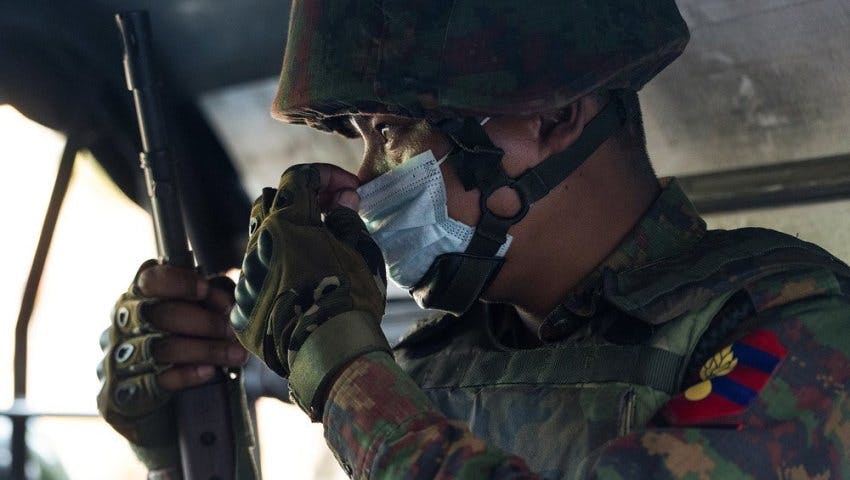
Read more → What a coup may mean for aid in Myanmar conflicts
March 2021
Syria: Ten years of war
The Syrian war entered its tenth year since protests against President Bashar al-Assad erupted in March 2011. It is a conflict that has been marked, at different stages, by sieges, starvation, bombing, street fighting, chemical attacks, the destruction of hospitals, and the manipulation of much-needed humanitarian aid. Most of the 6.6 million Syrians registered as refugees remain in neighbouring countries, despite promises by the international community to support them. Another 6.7 million Syrians are internally displaced, living in camps or sheltering wherever they can afford it inside the country. For the vast majority, with borders mostly closed, leaving the country is no longer an option.
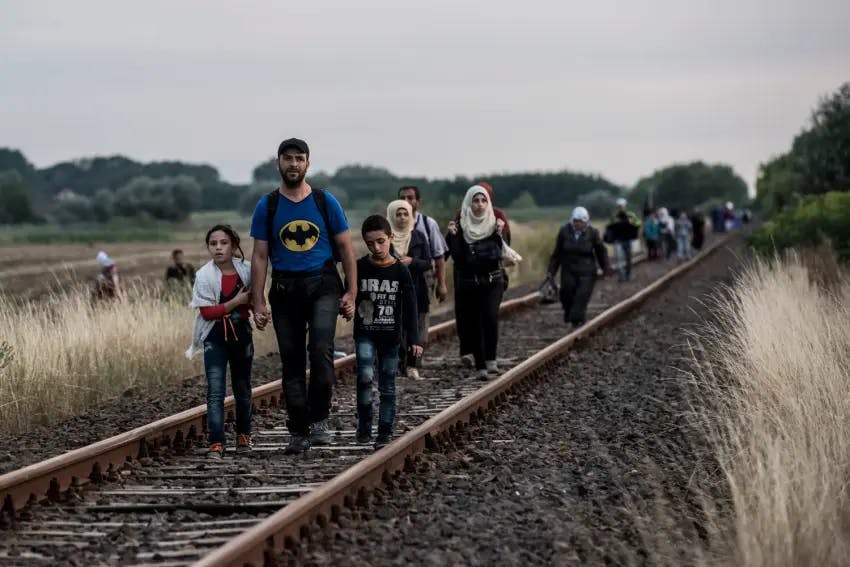
Read more → Syria: A decade of flight
Bangladesh: Rohingya camp fire
A deadly fire spread across the Rohingya refugee camps in Cox’s Bazar, Bangladesh, displacing at least 45,000 people. At least two children were among the dead, and 10,000 homes were destroyed or damaged in the largest of dozens of blazes to hit the camps. Barbed-wire fencing erected to keep Rohingya in prevented many from running to safety and delayed help, witnesses reported. Conditions in the overcrowded camps had been deteriorating, with residents exposed to weather extremes, and to trafficking and rising threats of violence due to poor security. The February coup in Myanmar narrowed the prospects of a return home.
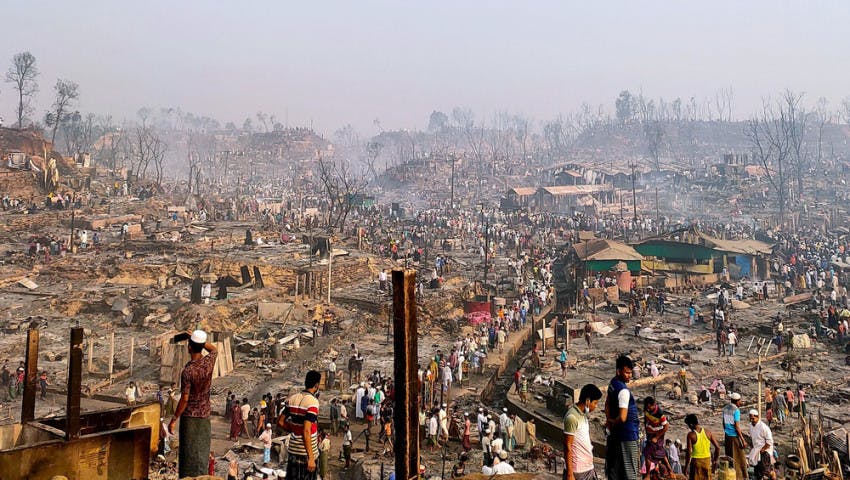
Read more → Rohingya camp fire: Barbed-wire fences blocked escape, witnesses say
April 2021
Sudan: Darfur unrest
A new round of deadly violence broke out in West Darfur, prompting officials to declare a state of emergency and appeal for help from the government to tackle the humanitarian fallout. The state’s governor said his administration was unable to cope with the scale of the displacement – numbering more than 100,000. Across the country, the UN estimated that more than a quarter of the population would need humanitarian assistance in 2021. Explanations on what drove the violence differed. Many accuse militias of stepping up attacks made deadlier by the December 2020 withdrawal of a UN-African Union peacekeeping mission after 13 years on the ground. Others blamed Sudan’s fraught political transition for polarising communities and stoking grievances among local elites.
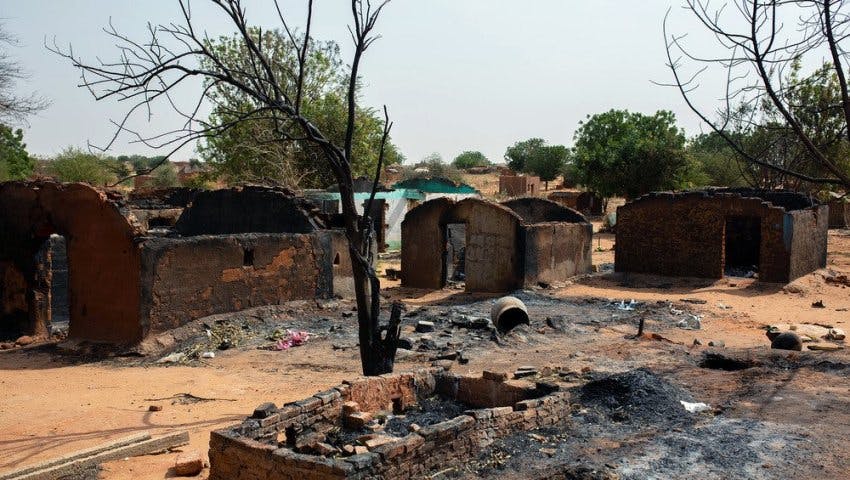
Read more → What’s behind the rising violence in Sudan’s Darfur?
May 2021
Gaza: Airstrikes and rocket fire
Eleven days of Israeli airstrikes in Gaza and rocket fire into Israel killed at least 280 people, mostly Palestinians. The strikes hit much-needed civilian infrastructure in Gaza, like hospitals and sanitation facilities, damaged or destroyed around 4,000 homes, and set back even further an economy crippled by multiple wars and Israel’s severe restriction on the movement of people and goods. The escalation in violence, the worst since the 2014 Gaza war, followed weeks of protests over restrictions on prayer in Jerusalem during the Muslim holy month of Ramadan, as well as the planned expulsions of Palestinian families from a neighbourhood in the east of the city.
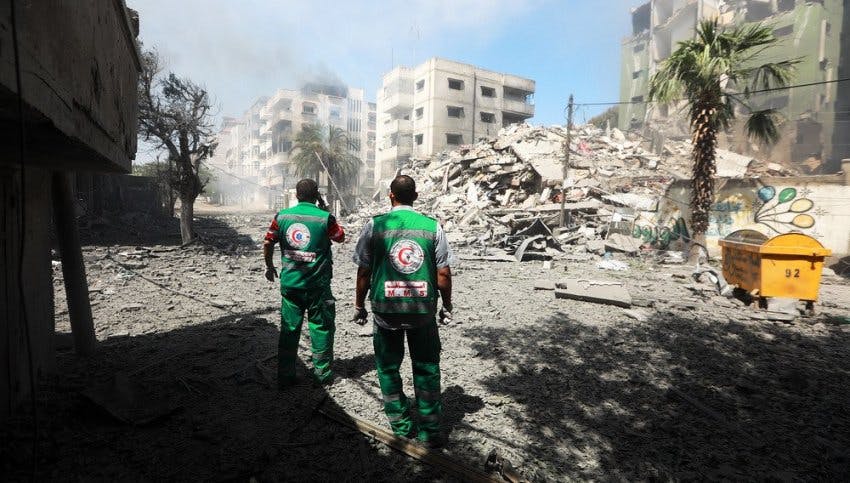
Read more → ‘I’ve never seen scenes as ugly’: Treating Gaza’s wounded
UN: New humanitarian chief appointed
Martin Griffiths was chosen to replace Mark Lowcock as the UN’s Emergency Relief Coordinator – the fifth Briton in a row to hold the top humanitarian post. The selection of Griffiths, who was serving as peace envoy to Yemen, was welcomed by some as a solid choice, though others saw it as a missed opportunity for transforming an aid sector being urged to listen to – and become more representative of – affected people.
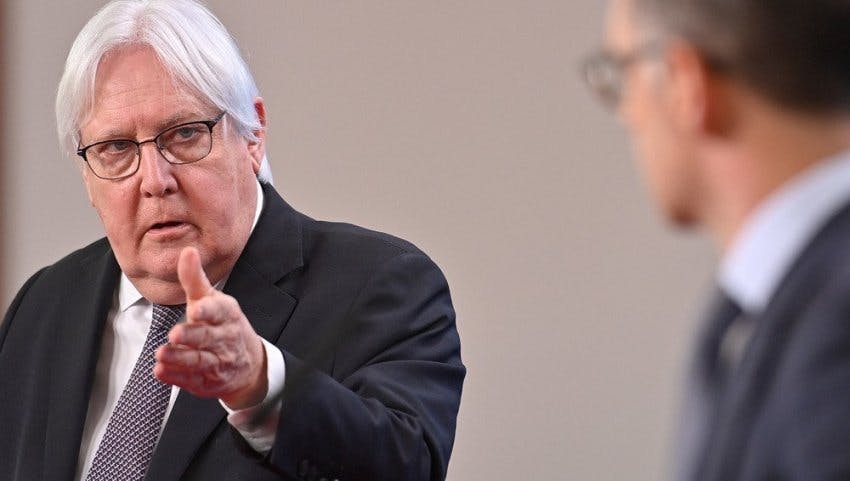
Read more → Can the UN’s new humanitarian chief be a reformer?
June 2021
EU: Mediterranean interceptions and deaths
2021 is shaping up to be a record year in terms of the number of asylum seekers and migrants intercepted by the EU-backed Libyan Coast Guard and returned to a cycle of abuse in Libyan detention centres. By the middle of June, nearly 13,000 people had been intercepted – already surpassing the total for all of 2020. The number of asylum seekers and migrants dying at sea is also on pace to be the highest since 2017 – even though fewer people are arriving in Europe. By the middle of December, nearly 31,500 people had been intercepted by the EU-backed Libyan Coast Guard and more than 1,500 had died or gone missing at sea. The numbers are not a tragic anomaly; they are the product of Europe’s approach to trying to stop migration from Libya that fuels a cycle of interception, detention, and abuse in Libya while leaving thousands to drown at sea.

Read more → Interactive: The European approach to stopping Libya migration
Sahel: Local peace bids and spiralling violence
Early June witnessed the deadliest incident in six years of escalating jihadist violence in Burkina Faso. At least 160 people were massacred in the village of Solhan, with the government and the UN describing many of the attackers as child soldiers between the ages of 12 and 14. Across the Sahel, 2021 saw a continuation of jihadist and inter-communal violence that has seen millions of people displaced in recent years. Fledgling efforts on a local level to stem the violence by talking to the jihadists appeared to yield some fruit in Burkina Faso and Mali, though attacks rose in some areas, including western Niger.
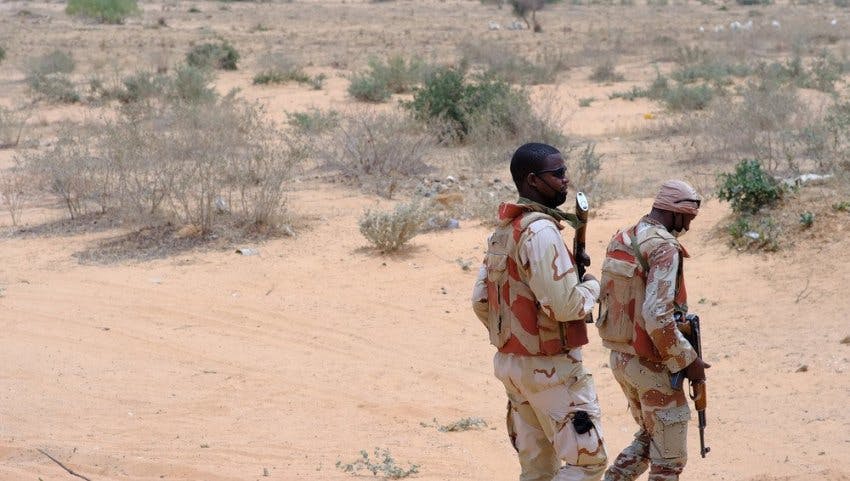
Read more → What’s behind the rising violence in western Niger?
July 2021
Lebanon: Soaring poverty
Lebanon’s caretaker Prime Minister Hassan Diab warned that the country was days away from a “social explosion”, with many people suffering from a devastating economic collapse as the currency had hit new lows, losing 90 percent of its value since October 2019. Throughout the year, poverty soared, banks severely limited the withdrawal of cash from personal accounts, and basics – like food and period products – became unaffordable for many. Humanitarian aid has long been a necessity for the 1.5 million Syrian refugees and hundreds of thousands of Palestinian refugees in Lebanon. But with more than half of the Lebanese population in poverty, Diab said the country needed help from the international community. That seemed unlikely without a government or consensus among politicians on how to form one. Diab and his cabinet have been serving in a caretaker capacity since they resigned en masse after last year’s deadly explosion at the Beirut port.
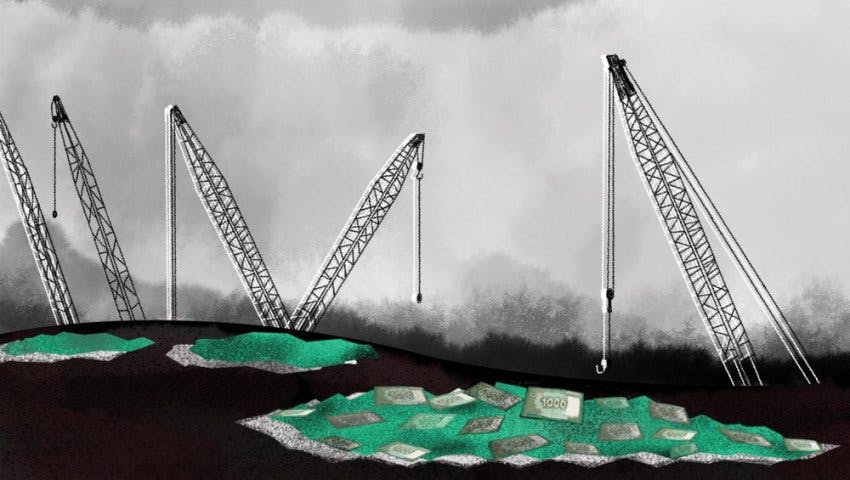
Read more → To help Lebanon through its collapse, listen to its most vulnerable
August 2021
Afghanistan: Taliban takeover
Aid groups in Afghanistan temporarily paused operations as they struggled to understand a vastly changed landscape following the stunning collapse of the international donor-backed government in early August. For some Afghans, the Taliban’s return to power ignited a frantic rush for the exits. The majority who remained saw the economy and public health sector crumble under donor funding freezes and sanctions. Aid groups feared the worst, especially for women, with nearly the entire population facing poverty and a severe hunger crisis at the doorstep.
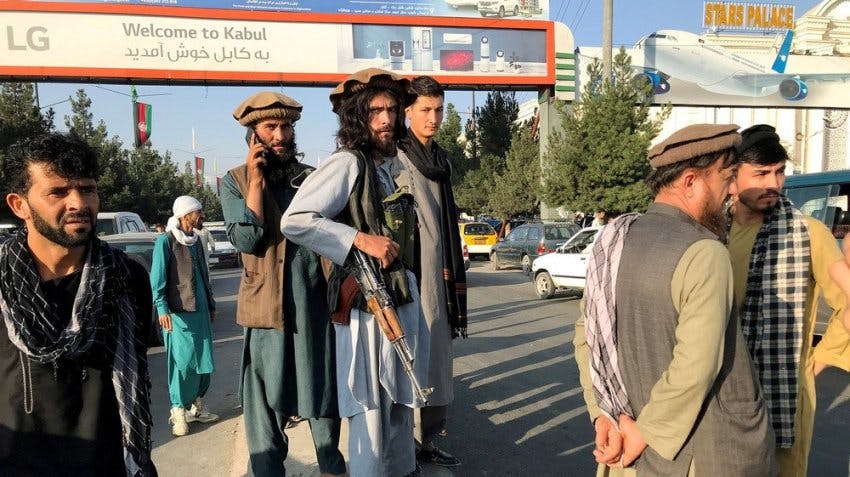
Read more → In Afghanistan, aid groups wrestle with the new reality of Taliban control
Haiti: An earthquake and an assassination
Weeks after President Jovenel Moïse’s assassination worsened Haiti’s already dire and volatile humanitarian situation, a 7.2-magnitude earthquake on 14 August killed more than 2,200 people in the southern peninsula – an area still recovering from a devastating 2016 hurricane. It also badly damaged hospitals, schools, and churches – an important source of support and humanitarian assistance in Haiti. Gangs, meanwhile, tightened their grip on the capital, Port-au-Prince, in the wake of Moïse death, delaying aid delivery. Some organisations suspended operations, citing the surge in violence and kidnappings, while almost one in two Haitians were projected to need humanitarian support.
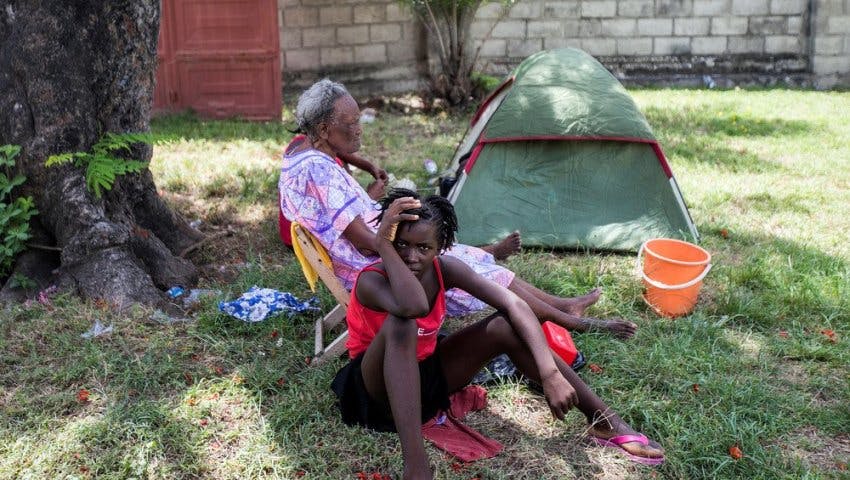
Read more → Haiti hospitals overwhelmed as earthquake disaster worsens existing needs
September 2021
Congo: WHO sexual abuse report
A damning report by an independent commission found that the World Health Organization (WHO) failed to prevent and tackle widespread sexual abuse during the Ebola reponse in Congo – a probe triggered by an investigation by The New Humanitarian and the Thomson Reuters Foundation. The commission’s investigators confirmed that women were promised jobs in exchange for “relationships” or were sexually exploited to keep jobs in the response. Tedros Adhanom Ghebreyesus, the WHO’s director-general, said he took “ultimate” responsibility for the failings. The WHO later promised to overhaul its culture and operations, pledging that steps would be taken to support survivors and their families, and allocating an initial $7.6 million to strengthen its capacity to prevent, detect, and respond to sexual abuse allegations in 10 countries with high-risk profiles.
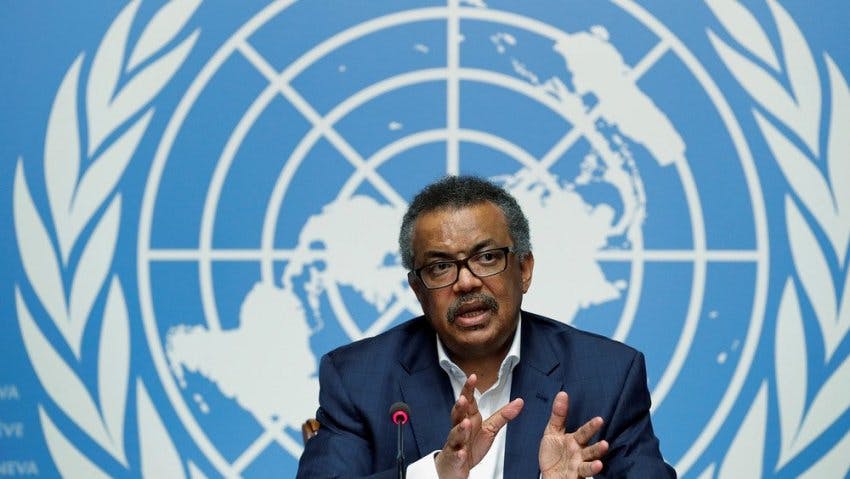
Read more → Sex abuse scandal rocks World Health Organization, but what now?
October 2021
Central America: Dangerous migrant route gets busier
Tens of thousands of people seeking refuge from poverty, conflict, disasters, and abusive gangs and regimes faced growing dangers making the land crossing between Colombia and Panama en route to the United States. Driven by COVID-induced economic pressures, and the difficulty of regularising their status in countries such as Chile, up to 100,000 people had reportedly arrived in Panama by October. This surge added extra pressure on already strained facilities in Necoclí, the main waystation in northwestern Colombia. The Colombian government called the situation a “humanitarian tragedy”. Migrants, especially from Haiti, faced rising xenophobia, and increasingly hostile policies in South America.

Read more → Key Central American migration route grows deadlier as numbers crossing soar
COP26: Humanitarian push on climate needs
Delegates from 197 nations began the COP26 climate summit on 31 October, ending two weeks later with a final document that nudged forward on emissions targets but largely failed to deliver on the finance issues so critical to nations already suffering the disastrous effects of climate change. The gathering was something of a turning point for humanitarians (Médecins Sans Frontières attended for the first time) in terms of advocating for stronger, more comprehensive climate action – particularly on finance – and the summit was accompanied by growing calls for the sector to regear and retool in the face of the climate crisis.

Read more → Why COP26 leaves humanitarians wanting more
November 2021
Belarus-EU: Migrants as political pawns
Thousands of asylum seekers and migrants from the Middle East, Afghanistan, and Africa became pawns in a geopolitical dispute. Authoritarian Belarusian President Alexander Lukashenko attempted to leverage deep EU divisions over migration policy to his political advantage by providing would-be asylum seekers and migrants with visas to Belarus and pointing them towards the EU’s borders. But pushback policies left them stranded without adequate access to services or assistance. Brussels accused Lukashenko of using irregular migration to retaliate against several rounds of EU sanctions.
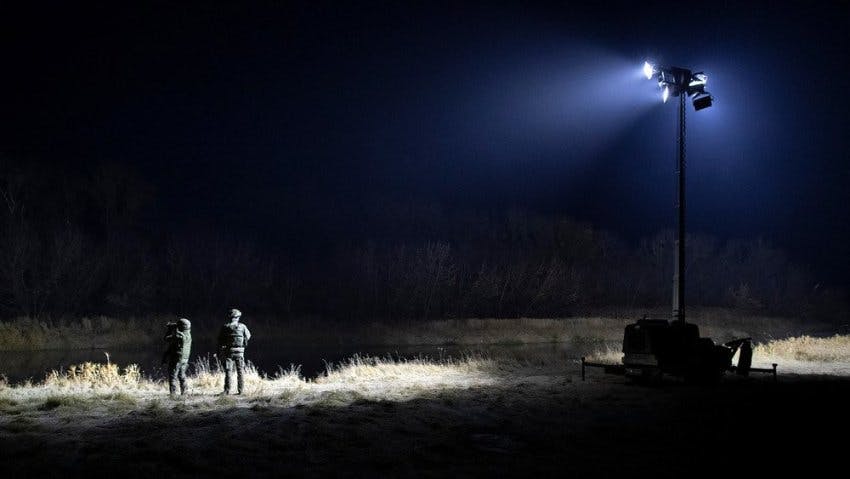
Read more → How politics caused a humanitarian crisis on the EU’s eastern border
Yemen: Rebel assault on Marib
A Houthi rebel offensive on the government-held city intensified, forcing an estimated 15,000 people to flee in November alone – the latest upheaval in more than six and a half years of war that has left, by the UN’s estimation, more than four million people displaced across the country. It is not entirely clear how many people will have to go on the run if and when the Houthis enter Marib city, as accurate statistics are hard to come by in Yemen, but a reasonable estimate seems to be at least 500,000, given that Marib has long been seen as a safe haven for those who oppose Houthi rule.
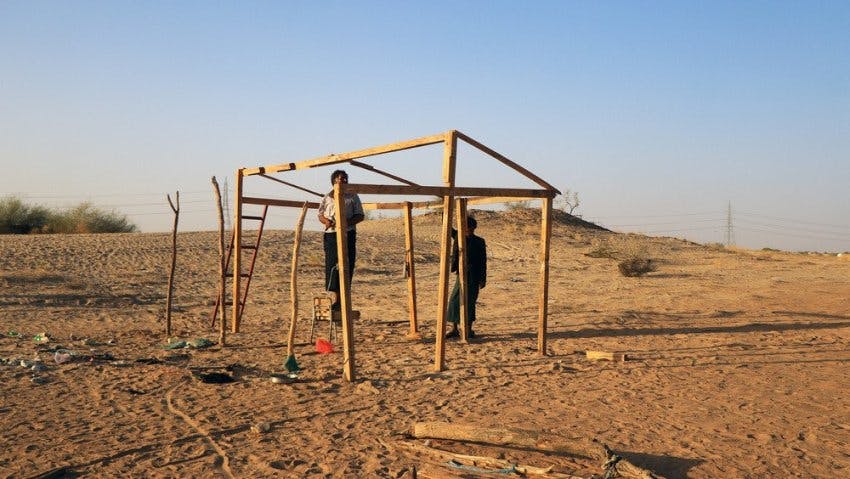
Read more → ‘The war crushed our dreams’: Displaced again and again in Yemen’s Marib
December 2021
Ethiopia: Call for Tigray ceasefire
Tigrayan rebel forces called for an immediate ceasefire after withdrawing from towns across the Amhara and Afar regions amid a government offensive that dramatically shifted the balance of Ethiopia’s 13-month conflict. The conflict began in November 2020 after months of tension between the government and the Tigray People’s Liberation Front, which dominated Ethiopia’s national politics for decades, until Prime Minister Abiy Ahmed took office in 2018. More than nine million people have been left in need of assistance across northern Ethiopia, and aid organisations have had to negotiate challenges to access throughout the year. It remains to be seen if federal forces will heed the ceasefire call or continue their advance into Tigray.
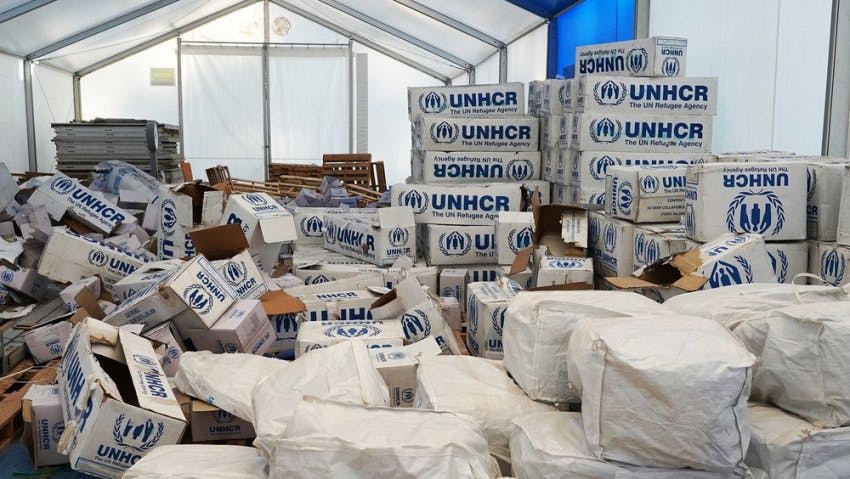
Read more → Tigrayan rebels offer ceasefire, as retreat leaves trail of abuse